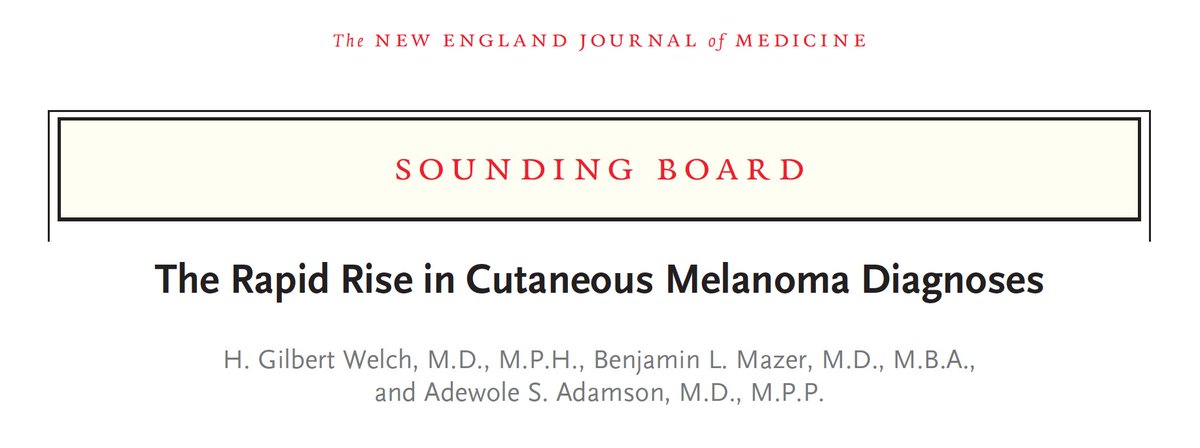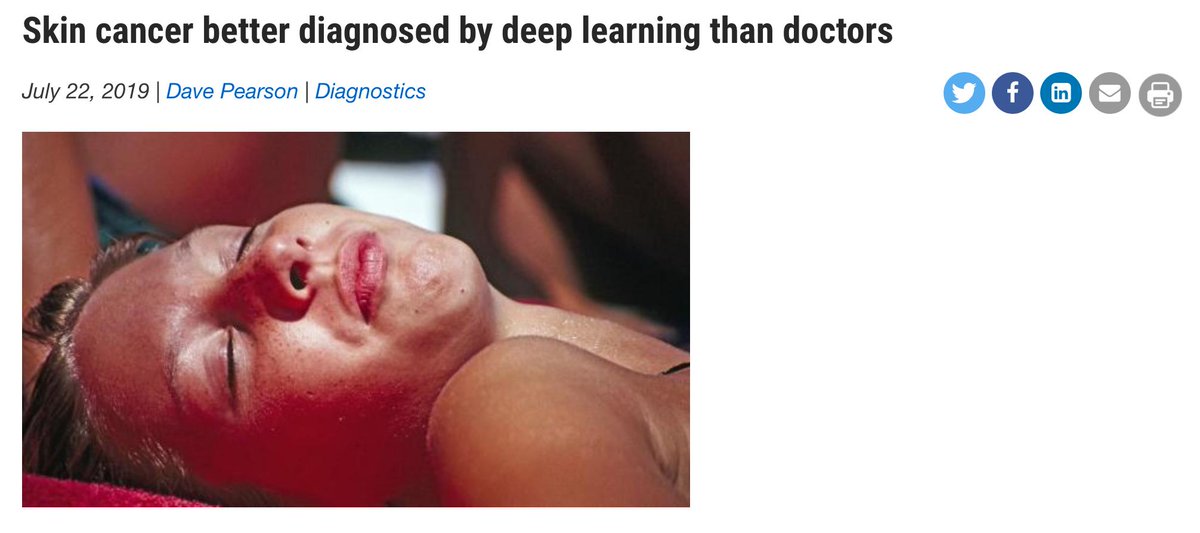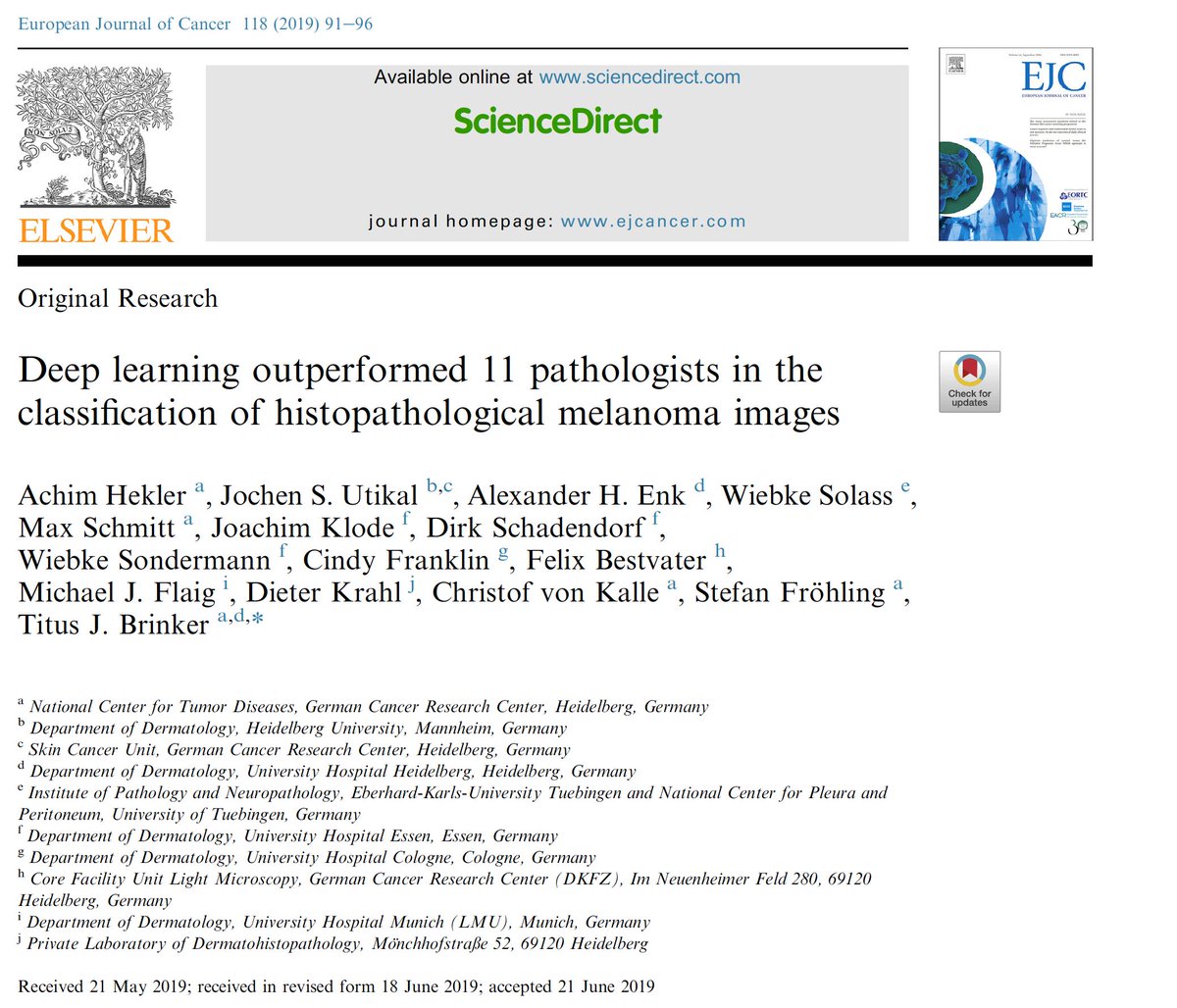
There are a lot of misconceptions about sunscreen and whether or not dark-skinned people need to wear it to prevent skin cancer. This NPR piece does a POOR job presenting the actual evidence. I think a TWEETORIAL is in order.
https://twitter.com/NPRCodeSwitch/status/1014880727694041088
Melanoma is a potentially deadly form of skin cancer that has been linked to over exposure to UV rays from the sun. Thus, the promotion of sunscreen as an effective intervention to prevent melanoma is a reasonable public health message.
While this may be true for fair-skinned patients, i.e. white people, this is NOT the case for dark-skinned people, i.e. most black and brown people.
To be sure, dark-skinned people can also develop melanoma. However, in the United States, melanoma is 20 to 30 times more common among whites compared to blacks. 

In the same way men can develop breast cancer but nobody with a brain is out here advocating we screen asymptomatic men for breast cancer. The risks are just way different to merit such an intervention.
Reducing the small risk of developing melanoma in dark skinned people even further with sunscreen is unlikely. Even among white people in the only RTC evaluating sunscreen for melanoma reduction, the absolute risk reduction was small. 

This sunscreen RTC was also done in Queensland, Australia which has the highest melanoma rate in the world!!! So, if there was to be a large observable effect it would be in this population. Also, there were ZERO black people in this study. 

In dark skinned patients, melanoma usually develops on parts of the body that get less sun exposure such as the palms of the hands and soles of the feet. Therefore, sunscreen will do NOTHING to reduce the risk of these cancers. 

When was the last time you saw a sunburn on the palms/soles? 🤔
But what about Bob Marley! He died from melanoma! Yea, he died from an acral melanoma on his toe, sunscreen would NOT have helped. 

Dermatologists will point out that black patients tend to show up to the doctor with later stage melanoma and have lower survival rates, which is true. But that has nothing to do with sunscreen application!!! These are two separate issues!!!
Also, if sunscreen was important in the prevention of melanoma in dark-skinned patients, then why have we never heard of an epidemic of sun-induced melanoma in sub-Saharan Africa, a region with intense sun, a lot of dark-skinned people, and little sunscreen? 🤔
If you have dark skin sunscreen may help reduce freckling, sunburns, wrinkles, which are all worthwhile, but reducing your risk of melanoma, unlikely.
As dermatologists/physicians, we can do a better job educating patients about the risk of skin cancer, without promoting a fear-mongering public health message that is not grounded in evidence.
Here we have the opportunity to tailor the appropriate intervention to the appropriate patients. I think #PrecisionMedicine twitter would like that.
@VinayPrasadMD's recent fantastic tweetorials inspired to do another one.
Was this tweetorial helpful?
• • •
Missing some Tweet in this thread? You can try to
force a refresh









